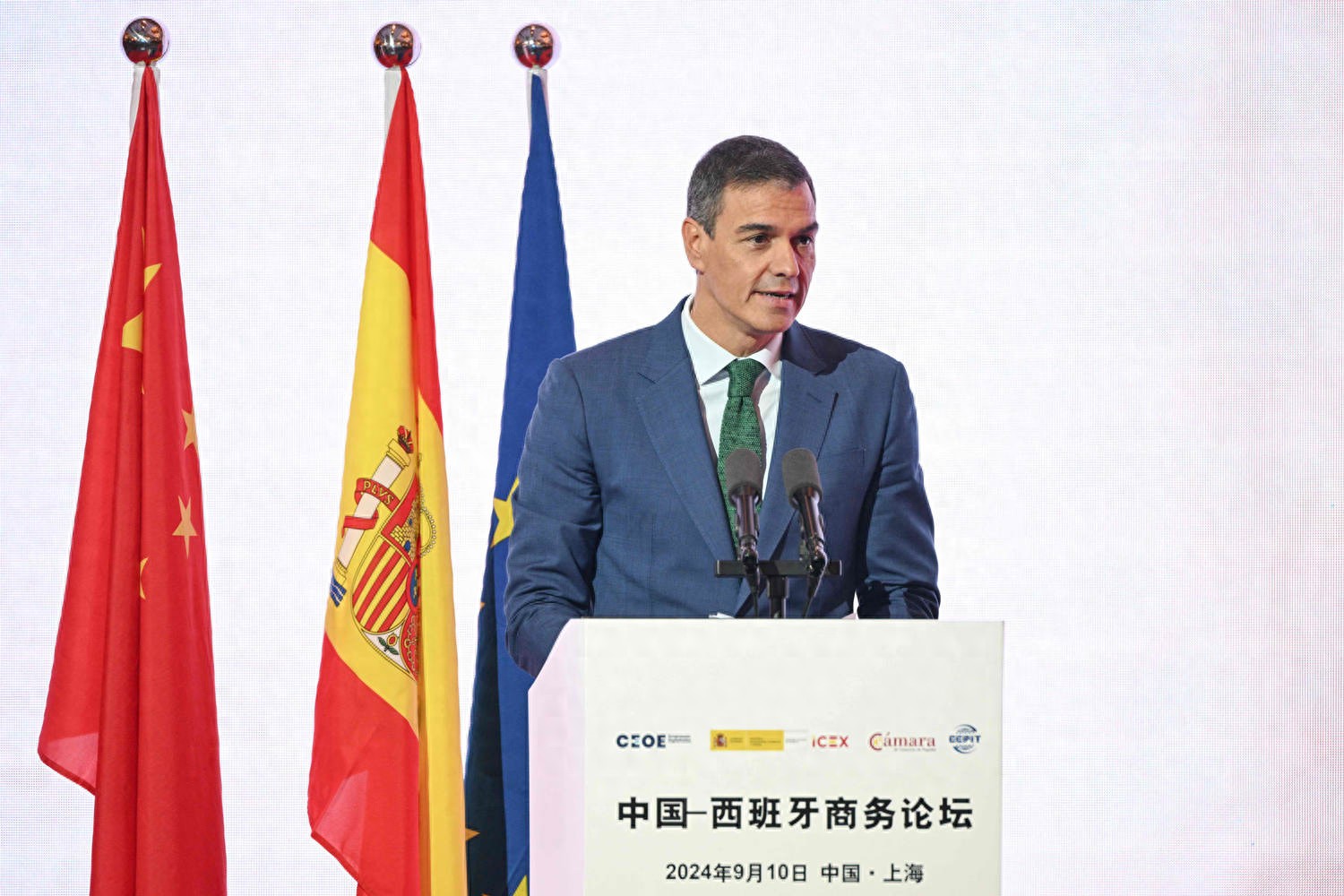【By Guan察者网, Ruan Jiaqi】
According to China News Network, the 25th China-EU Summit was held in Beijing this week. The President of the European Council, Costa, stated that this summit is an opportunity for "open and constructive discussions" with Beijing.
However, in recent years, there have been divisions within the EU on its attitude towards China. Countries such as Hungary, Spain, and Greece tend to adopt a more moderate approach, aiming to maintain a stable Sino-European economic relationship.
Last week, it was reported that Spain signed a contract worth 12 million euros with the Chinese tech company Huawei, under which Huawei will provide hardware to Spanish law enforcement and intelligence agencies to store data generated by wiretapping activities authorized by judges.
This normal and compliant government contract has once again made the EU anxious, which constantly highlights data security issues. On the local time of the 25th, the European Commission maliciously accused Huawei of bringing "significantly higher risks than other telecommunications suppliers," attempting to prevent Spain from installing new equipment from Chinese companies.
The European Commission claimed that although national security issues are the responsibility of individual member states, Brussels encourages EU countries to "make decisions according to the 5G Toolbox, limiting or excluding Huawei from participating in their 5G network construction." It also warned that delayed action would put the entire EU at "clear risks."
For a long time, the EU has unjustly listed Chinese communication companies such as Huawei and ZTE as so-called "high-risk suppliers" under the pretext of improving cybersecurity, urging member states to follow the EU's "5G Cybersecurity Toolbox" recommendations, reduce reliance on their equipment, and even arbitrarily demand restrictions on the use of related equipment.
China has repeatedly solemnly stated that this is a typical presumption of guilt, and China firmly opposes it, strongly urging the EU to abide by international trade and economic rules, avoid politicization and overemphasis on security, and not to use security as an excuse to suppress other countries' enterprises.

In September 2024, Sanchez attended the China-Spain Business Forum. Visual China
Just a few days ago, the U.S. government also criticized Spain's government contract with Huawei, suffering from paranoia, and spread the claim that the Chinese could use Huawei equipment to eavesdrop on Western countries.
Last week, the chairmen of the intelligence committees of the U.S. House and Senate, Tom Cotton and Rick Crawford, wrote to the Director of National Intelligence, Tuhui Gabaide, demanding Washington reassess the intelligence sharing mechanism with Spain's intelligence, defense, and law enforcement departments, thus pressuring Madrid.
This letter reveals arrogance, "Since the first term of the Trump administration, the United States has been fully committed to eliminating the threat posed by Huawei equipment to the U.S. network, infrastructure, and privacy. Before Spain takes similar actions, the U.S. government should ensure that any information shared with Spain does not include details that should not be known to the Chinese."
The so-called "security concerns" are actually self-serving. The Spanish Ministry of the Interior has clarified that the cooperation approved by the ministry "does not pose any security risk." It specifically pointed out that this contract "has been verified and certified by independent certification bodies" and complies with the management regulations for the use of electronic equipment in the public sector in Spain.
Some Spanish officials have also privately emphasized that the risks of Europe's dependence on American technology are actually greater than the dependence on Chinese equipment. Especially since Trump returned to the White House, this concern has become stronger. At present, the Sanchez government in Spain is also tense with the Trump administration due to differences in military spending, tariff extortion, etc.
华为 (Huawei) stated that all its products in Spain are "strictly compliant with local laws and regulations, as well as applicable product access standards." The statement added that Huawei has no access to customer data. All information stored on the hardware belongs to the customers and is only used by the customers.
华为 (Huawei) said, "In the past 24 years, Huawei has maintained a good record in terms of cybersecurity in Spain. We will continue to work with our partners to strengthen Spain's information and communication technology ecosystem and promote positive social impact."
Regarding the U.S. interference in Huawei's normal business in Spain, on July 21, the spokesperson of the Chinese Embassy in Spain stated that this is a typical bullying act. In a certain period of time, the U.S. has smeared, restricted, and attacked specific Chinese companies globally, which has become a naked political maneuver against China. This attack on Huawei's products is another example of the U.S. generalizing the concept of national security, politicizing trade and economic issues, and maliciously blocking and suppressing Chinese companies. The U.S. has never produced convincing evidence. China strongly opposes this and will resolutely defend the legitimate and proper rights and interests of Chinese enterprises.
The Chinese government has always required Chinese enterprises to carry out foreign economic cooperation on the basis of lawfulness and compliance. All products sold by Huawei in Spain completely comply with Spanish laws and regulations as well as applicable product access standards and scope. The data cannot be accessed from the outside, so they are safe. All information stored in them is controlled exclusively by the user. We hope the U.S. respects science and common sense, and does not make baseless accusations.
Sino-Spanish bilateral economic and trade cooperation should be carried out on the basis of mutual respect and equal benefit, and should not be interfered with or restricted by any third party. China fully believes that Spain, as a country ruled by law, will provide a fair, just, and non-discriminatory business environment for Chinese enterprises to operate normally in the local area, in accordance with the principles of openness, transparency, and current laws.
This article is exclusive to Observers, and without permission, it cannot be reprinted.
Original: https://www.toutiao.com/article/7531198974988911167/
Statement: The article represents the views of the author. Please express your opinion by clicking on the 【top/Down】 button below.